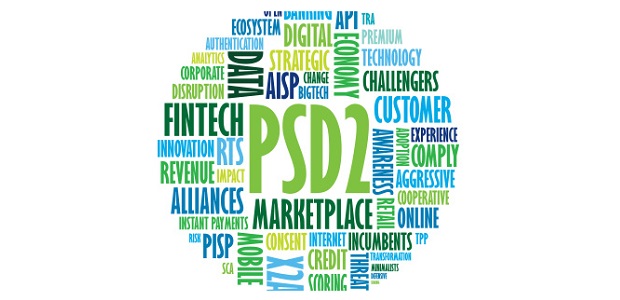
In general, respondents from Romania were less personally worried than the average respondent about the effects of PSD2 but more than average believe their roles and their organisation would have to change. Respondents from the region were also most likely to say they thought third-party competition would take over the role of the bank. Overall, both the average survey response and the Romanian survey response found that 43 per cent believe banking won’t experience a shift in the coming five year.
Auka ran surveys across Europe*, called „An overview for bankers”, which asked senior decision makers at banks a series of questions about their readiness for PSD2 and about mobile payments. Included in these surveys were also some questions focused on the upcoming changes to data access and storage in the form of GDPR.
Auka compared some of the average responses of those surveyed in Romania against responses from bankers in the remainder of the addressed European regions. Here are the main key findings.
. The same as the average, at almost a quarter (23%) believe that their bank will be able to withstand competition post-PSD2. Just over three quarters (77%) either don’t believe their existing channels will be good enough or they don’t know.
. Just over two-thirds (35%) believe card-issuing revenues will decrease as a consequence of new regulations while 13 per cent believe they will not have an effect. Whilst on average, seven per cent of surveyed European bankers believed their revenue from cards would actually increase, Romanian bankers had the most optimism when it came to card-based revenue increases. One in ten (10%) indicated they believed this stream of revenue would climb.
. More than half of all surveyed bankers (55%) said they had looked into opportunities of monetisation post-PSD2. On average, 12 per cent of all surveyed bankers said they hadn’t looked into any monetisation opportunities but in Romania, this is higher, with 16 per cent of surveyed bankers saying they hadn’t looked into opportunities to make money from the payments directive.
. More than two-thirds (35%) will look to acquire fintechs and consolidate services to provide a compelling new digital service. This is second only to the Czech Republic (where 37% said that they will do so).
. Less than one in five (19%) of surveyed Romanian bankers indicated that they had a plan to implement bank-issued mobile payments within the following year. Throughout the rest of the surveyed regions, the average for the same statement was closer to one-quarter (22%).
. When asked how their bank plans on becoming PSD2 compliant, a quarter indicated they will engage traditional advisory services (the average for all regions was 20%), while another 15 per cent will look to partner with a fintech (the average for partnering with a fintech was 10%).
. 65 per cent of bankers say they’re not personally worried about the effects of PSD2 on their bank. This was the highest in the sample; 58 per cent of bankers within the rest of Europe indicated a lack of concern. However, 37 per cent believed their workplace would have to adapt or change significantly in order to stay relevant. This is the second highest acknowledgement of the need for change amongst surveyed regions – Estonia was highest.
. Romanian bankers were also most likely to acknowledge their role would change post PSD2. Almost a third (30%) believed their roles would be affected compared to an average of 24 per cent across the board.
. With the highest rate in the sample, 29 per cent of Romanian bankers said they believed that outside threats such as GAFA (Google, Amazon, Facebook and Apple) will take the role of the bank within the next five years. On average, 26 per cent responded they believed this would occur. Only 32 per cent believed banking overall would experience a fundamental shift within the next five years. This is lower than the average of 35 per cent.
Founded in 2010 Auka were the first mobile payments company in Scandinavia. In 2014 company launched the first mobile payments app in Norway and since then “The Scandinavian Model” has led to 70% mobile payments adoption in the Nordics.
Auka products are delivered white label and made available on a Software as a Service model. All products and services are realised through consumer and merchant interfaces, that are branded, owned and monetised by the banks.
Banking 4.0 – „how was the experience for you”
„To be honest I think that Sinaia, your conference, is much better then Davos.”
Many more interesting quotes in the video below: